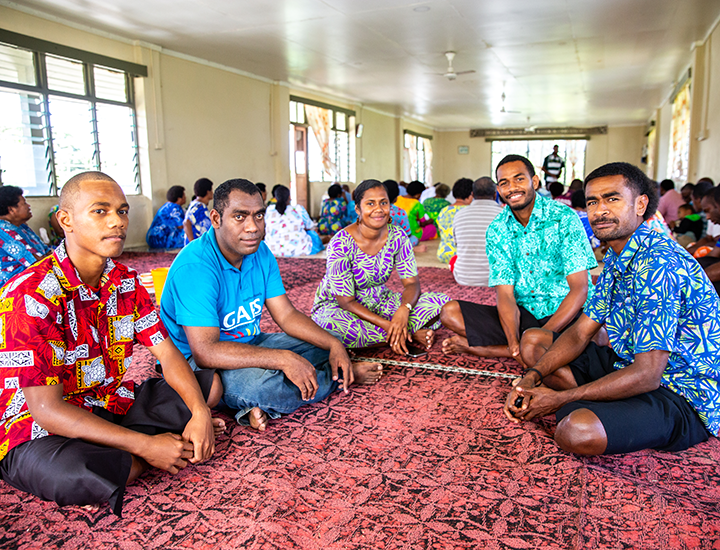Rise and Thrive: Building resilient communities through inclusive mental health
Stories | April 8, 2024
As the climate crisis accelerates, communities across the Indo-Pacific continue to be burdened most harshly.
Growing evidence indicates climate-related disasters are triggering mental health issues within these communities.
Women and people from diverse sexual and gender minority groups, and people with psychosocial disabilities, are more than twice as likely than men to experience depression, anxiety and suicidal ideation. Many people in low to middle income countries will never access vital mental health support, and for those who do, the quality of services is often poor.
Subsequently, mental health continues to be one of the most neglected and underfunded development issues of our time.
With funding from DFAT’s Partnerships for a Healthy Region (PHR) initiative, CBM Australia is working to achieve #HealthyRegions with our new program ‘Rise and Thrive: Regional Health Partnerships in the Pacific and South-East Asia’.
‘Rise and Thrive’ focuses on four key areas to ensure the needs and priorities of people with disabilities are being met, including:
- Voice and accountability: elevating the voice of people with psychosocial disabilities in a rights-based and gender equal approach.
- People-centred: promoting effective models of care that respect the rights of people with psychosocial disabilities.
- Community inclusion: promoting inclusive approaches at a community level to support acceptance and greater recovery outcomes.
- Community resilience: promoting greater integration of mental health and psychosocial support systems in communities.
Working in partnership with local Organisations of People with Disabilities (OPDs), ‘Rise and Thrive’ supports the delivery of need-based mental health and social care for people with psychosocial disabilities and their communities.
#HealthyRegion
CBM Australia acknowledges the support of the Australian Government through the Partnerships for a Healthy Region initiative.
https://www.cbm.org.au/stories/rise-and-thrive-building-resilient-communities-through-inclusive-mental-health
Related Stories

Building a Just and Inclusive Future: Disability-Inclusive Disaster Risk Reduction and Climate Action
People with disabilities are among the hardest hit by...

Week 1 – Lent series 2025
Being held by Jesus…held together by Jesus, invites us to lean into solidarity. As we begin Lent today, we will be reflecting on the theme...

Five things organisations should think about when supporting OPDs in capacity strengthening
Strengthening the capacity of organisations of people with disabilities...
